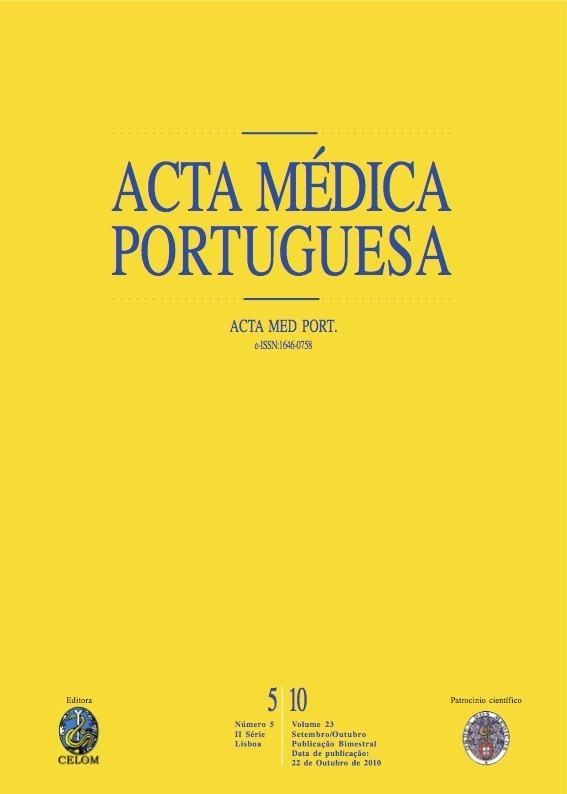Escherichia coli's endocarditis in a prosthetic aortic valve - diagnostic and therapeutic particularities.
DOI:
https://doi.org/10.20344/amp.702Abstract
Escherichia coli endocarditis is a rare condition, even though bacteriemia by such agent is common. The infection, normally from a urinary origin, may, in fact, progress without major hemodynamic disturbance and minimal symptoms, regardless its ability of destruction of heart's valvular apparatus. We present a case report of a 68-year-old man, with a history of aortic valvular mechanic prosthesis, dyslipidemia and hypertension, admitted at the emergency room with refractory fever and urinary tract symptoms. On the hypothesis of endocarditis, he was submitted to transesofagic echocardiography that suggested a prosthetic vegetation, without hemodynamic dysfunction. E. coli was cultured from the blood soon after, and antibiotics adapted according to sensibility testing. Nevertheless, the patient deteriorated, both clinically and echocardiographically, with development of periprosthesis abscess, detachment of the prosthesis and extension of the infection to other valves, with hemodynamic dysfunction. The infection was only restrained with a surgical approach, which reflects the importance of this therapeutic weapon in these situations, including the correct timing.Downloads
Downloads
How to Cite
Issue
Section
License
All the articles published in the AMP are open access and comply with the requirements of funding agencies or academic institutions. The AMP is governed by the terms of the Creative Commons ‘Attribution – Non-Commercial Use - (CC-BY-NC)’ license, regarding the use by third parties.
It is the author’s responsibility to obtain approval for the reproduction of figures, tables, etc. from other publications.
Upon acceptance of an article for publication, the authors will be asked to complete the ICMJE “Copyright Liability and Copyright Sharing Statement “(http://www.actamedicaportuguesa.com/info/AMP-NormasPublicacao.pdf) and the “Declaration of Potential Conflicts of Interest” (http:// www.icmje.org/conflicts-of-interest). An e-mail will be sent to the corresponding author to acknowledge receipt of the manuscript.
After publication, the authors are authorised to make their articles available in repositories of their institutions of origin, as long as they always mention where they were published and according to the Creative Commons license.









